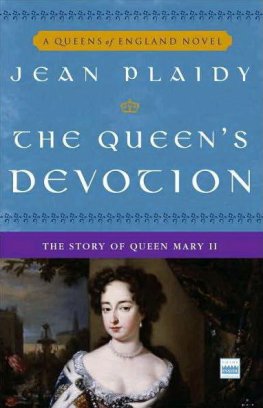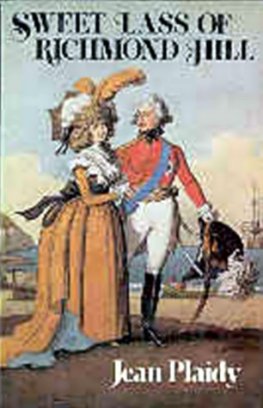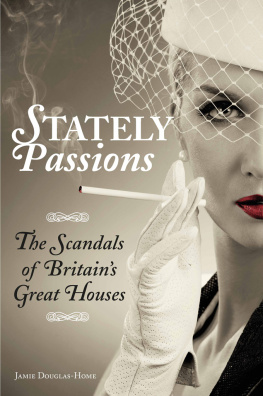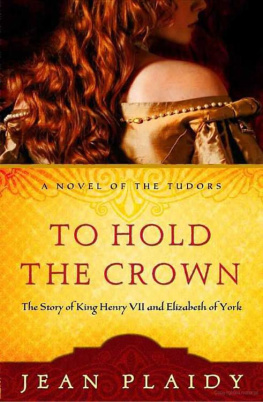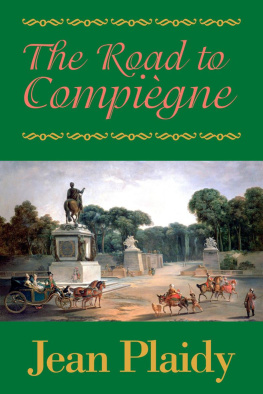Viktoriya Holt - It began in Vauxhall Gardens
Here you can read online Viktoriya Holt - It began in Vauxhall Gardens full text of the book (entire story) in english for free. Download pdf and epub, get meaning, cover and reviews about this ebook. genre: Romance novel. Description of the work, (preface) as well as reviews are available. Best literature library LitArk.com created for fans of good reading and offers a wide selection of genres:
Romance novel
Science fiction
Adventure
Detective
Science
History
Home and family
Prose
Art
Politics
Computer
Non-fiction
Religion
Business
Children
Humor
Choose a favorite category and find really read worthwhile books. Enjoy immersion in the world of imagination, feel the emotions of the characters or learn something new for yourself, make an fascinating discovery.

- Book:It began in Vauxhall Gardens
- Author:
- Genre:
- Rating:4 / 5
- Favourites:Add to favourites
- Your mark:
- 80
- 1
- 2
- 3
- 4
- 5
It began in Vauxhall Gardens: summary, description and annotation
We offer to read an annotation, description, summary or preface (depends on what the author of the book "It began in Vauxhall Gardens" wrote himself). If you haven't found the necessary information about the book — write in the comments, we will try to find it.
It began in Vauxhall Gardens — read online for free the complete book (whole text) full work
Below is the text of the book, divided by pages. System saving the place of the last page read, allows you to conveniently read the book "It began in Vauxhall Gardens" online for free, without having to search again every time where you left off. Put a bookmark, and you can go to the page where you finished reading at any time.
Font size:
Interval:
Bookmark:
Jean Plaidy
It began in Vauxhall Gardens
PART ONE
THE CONVENT
ONE
The Convent Notre Dame Marie stood on an incline above the townof it and yet apart from it. Like a guardian fortress, it commanded views of the winding river. Its hard granite walls seemed to stand in defiance of intruders and in contemptuous scorn of the ruined chateau which occupied a similar position on the opposite side of the river.
It was said that both Convent and chateau had been built long before the days of gay King Francois, and that when that King had passed along the river, he had lingered. Beautiful buildings attracted him as did beautiful women, and he had taken a fancy to the chateau and the town's girls. He had extended the chateau and dallied with the women of the town until, tiring of them both, he passed on.
As the Mother Superior was fond of pointing out, the residents of the chateau had been Revelry and Sin; and now it was nothing but a ruina pile of stones here, the remains of a wall there, a spot to which people might climb in order to enjoy a picnic. Last year an Englishman had broken his leg scrambling over the ruins and had had to spend many weeks at the Auberge Lefevre, to his great discomfort but to the considerable profit of the Lefevres. Yes, the chateau represented Sin and the Convent Virtue. This, said the Mother Superior to the little ones in her charge, was a significant lesson to all who looked from the ruins to the solid walls of the Convent Notre Dame Marie. One was the house which had been built on a rock; the other the house which had been built on sand.
The peasants lived by the Convent bells. There were bells to arouse them from their sleep, and bells by which to go to bed. The black-clad figures of those nuns who had not taken the veil were continually seen in the market square, where they offered for sale the products of their gardens and the sewing room. Sister Therese was as well known as any of the old men who sat outside the auberge talking of days gone by when there had been revolution in France and the streets of Paris had run with blood.
"Bonjour, Soeur Therese!" even the children who could scarcely toddle would call after her; and she would turn and peer at them with her gentle, myopic eyes. She was not very beautiful; her back was bent from long work in the gardens, and her skin dry wrinkled and an unhappy shade of brown from the same labours. In the town the people said that she peered at them so searchingly because, in the years which saw the end of her youth and the beginning of her middle age, she had hoped to discover her lover, come to the town in search of her. She would not take her vows, they said, in case he came. And though it was hardly likely that her Jean-Pierre would come looking for her now, the peering had become a habit; but still she would not take her final vows.
She led the novicesthe fresh-faced ones, so serious, so conscious of vocationabout the town like a benign shepherd. Leading her sheep to the slaughter which should never be for herself! So said Armand Lefevre; but he was a profane man, a lazy good-for-little, who sat outside the auberge, day in, day out, drinking with any who could spare the time for him, and leaving to Madame the business of keeping a roof over their heads.
Just before midday the children would walk in a little crocodile down the steep incline to the town, along by the river, and back again led by Sister Eugenie or Marie or old Therese, never loitering, never taking off their sabots to dip their toes in the river, for such was forbidden. The town mothers sorrowed for them and referred to them as les pauvres petites.
The Englishman who was staying at the auberge, and who was invariably sitting outside it with Armand beside him drinking a glass of wine, would follow them with his eyes.
He was tall and distinguished, this Englishman-a real lord, it was said, although he called himself plain Charles Adam. Madame and Monsieur Lefevre shook their heads over that plain name. It was a masquerade, a little secret, they were sure. They had found a kerchief of his with a different pair of initials. C.T. instead of G.A. He was a lord, they were sure; he was an aristocrat of the sort whom they had known before the days of the Terror and had rarely seen since, even though France had once more a King in Louis-Philippe. Madame declared that she knew an aristocrat when she saw one. And, she said to Marie her cook, if Monsieur Milord had a secret, then he was more charming than ever, for it was a romantic secretMarie could depend on that.
Madame looked down from an upper window on her husband and the Englishman. Armand does not love work, she thought; but he is good for business. It was true; few could resist his talk; he was an inquisitive old man who knew, almost before their conception, when new babies were to be expected; he would watch over town matters with such knowledgeable delight that it was impossible not to enjoy sharing his knowledge and with it his delight.
The Convent bell was ringing and here came les pauvres petites. Therese was leading them, and with her walked Sister Eugenie, their black garments swinging away from them like broken wingstwo black crows, and the fledglings behind them.
Madame looked wistfully at the children who might have been so pretty but for their black clothes. The nuns might be industrious and clever with their needles, but alas! the dear saints were oblivious of the fashion for young children.
Madame sighed, thinking of her own two sons and daughter all married and far away.
At the end of the crocodile was the naughty little onethe charming little one, whose small oval face with the flashing green eyes always warmed Madame's heart. How old was the little Melisande ? Thirteen, it was said; though in some ways she seemed older, in some ways younger; sometimes almost a young woman, at others a charming child.
Melisande loitered at the end of the crocodile. Once she had stopped to talk to a young boy in a boat, and Sister Marie had been angry with her. Had the child suffered ? Madame hoped the children were not beaten for wanting to stay in the sunshine, for wanting to play like other children. Nuns were inclined to suspect sin in what a less holy woman would call childish naughtiness.
Now they were passing close to the inn and as they came level with the table at which Armand sat with the Englishman, something clattered to the ground. Madame stared. She saw that the little Melisande had been carrying her sabots and one had fallen from her hands and alighted right at the feet of the Englishman.
He picked it up. Melisande had broken from the ranks and turned back to retrieve her sabot. The Englishman rose, picked up the sabot and handed it to the child.
Madame could not resist the temptation to lean out of the window and listen.
Melisande had lifted her charming face and was looking at the Englishman with bold pleasure. "It was hot," she said. "I took off my sabots"
Madame thought that Melisande's eyes were like cool clear water with summer leaves reflected in it.
"Thank you, Monsieur," said Melisande. "I am sorry to have given you the trouble of picking it up."
He said stiffly in his English-French: "It is no trouble, Mademoiselle."
"You are English!" cried Melisande. "I speak English. The nuns teach me." Then she continued in his own tongue: "How do you do? It is hot to-day. Have you seen my book? Here is a picture of my grandmother." Then she laughed in that clear, joyous way which Madame was sure would be frowned on in the Convent.
The Englishman was smiling. It was the first time Madame had seen him smile.
Melisande stood, her bare feet apart, delighting in what must, to her, be an adventure. But she looked over her shoulder suddenly, for the inevitable had happened; it would have been whispered through the crocodile, from tail to head; and at the head were the Sisters Eugenie and Therese. Now they had stopped; they had seen. At least Eugenie had; Therese was peering about her in anxious concern.
Font size:
Interval:
Bookmark:
Similar books «It began in Vauxhall Gardens»
Look at similar books to It began in Vauxhall Gardens. We have selected literature similar in name and meaning in the hope of providing readers with more options to find new, interesting, not yet read works.
Discussion, reviews of the book It began in Vauxhall Gardens and just readers' own opinions. Leave your comments, write what you think about the work, its meaning or the main characters. Specify what exactly you liked and what you didn't like, and why you think so.

